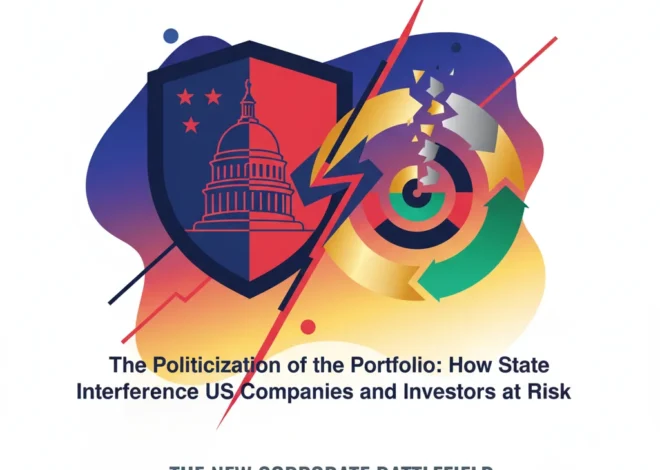
Beyond the Balance Sheet: The Post Office Scandal, a Murder Conviction, and the Hidden Risks in Modern Finance
In the world of high finance and cutting-edge financial technology, risk is a calculated metric. We model it, trade against it, and build entire economic systems to manage it. But what happens when a risk emerges that defies quantification—a technological failure so profound it not only bankrupts individuals but calls into question a murder conviction? This is the stark reality unfolding in the United Kingdom, where postmasters are now backing calls for the re-examination of the case of a sub-postmaster convicted of killing his wife. This single, tragic story is the latest aftershock of the Post Office Horizon scandal, a catastrophe that serves as a critical lesson for every investor, business leader, and fintech innovator today.
The case of Robin Garbutt, sentenced to life in prison in 2011 for the murder of his wife Diana, is now being viewed through a new, deeply unsettling lens. The motive, prosecutors argued, was that he killed her to conceal his theft of money from their sub-post office—a theft he has always denied. The evidence for these financial troubles was rooted in data from the now-infamous Horizon IT system. As the foundations of that system have crumbled, revealing it to be the source of one of the UK’s most widespread miscarriages of justice, the very basis of Garbutt’s conviction is being challenged. This story is no longer just about one family’s tragedy; it’s a cautionary tale about the intersection of technology, justice, and corporate accountability, with profound implications for the entire global economy.
The Horizon Scandal: A Case Study in Fintech Failure
To understand the gravity of the situation, one must first grasp the scale of the Post Office Horizon scandal. Developed by the Japanese technology giant Fujitsu, the Horizon IT system was rolled out in 1999 to automate and manage transactions, accounting, and stocktaking for thousands of Post Office branches across the UK. It was hailed as a leap forward in financial technology, designed to bring efficiency and accuracy to a sprawling network.
Instead, it became a digital nightmare. Almost immediately, sub-postmasters—independent business owners who ran local post offices—began reporting inexplicable shortfalls in their accounts. The system was creating phantom losses, with amounts ranging from a few thousand to tens of thousands of pounds. When they raised the alarm, they were met with institutional denial. The Post Office, armed with data from its supposedly infallible system, maintained that the numbers were correct and the sub-postmasters were to blame.
What followed was a brutal, decade-spanning campaign of persecution. Between 1999 and 2015, the Post Office relentlessly pursued its own people, leading to:
- Over 700 wrongful prosecutions for theft, fraud, and false accounting.
- Countless bankruptcies as individuals were forced to “repay” money that was never missing.
- The destruction of families, reputations, and lives, with reports of at least four suicides linked to the scandal.
A landmark 2019 High Court ruling finally vindicated the sub-postmasters, with the judge describing Horizon’s software as having “bugs, errors and defects” and stating the Post Office’s approach amounted to “institutional obstinacy.” According to a timeline published by the UK Parliament, the scandal is now the subject of a statutory inquiry, and the financial and reputational costs continue to mount.
The Inflation Tightrope: Why the IMF is Sounding the Alarm for the UK Economy
From Financial Crime to Murder: The Ultimate Ripple Effect
The case of Robin Garbutt represents the most terrifying potential extension of this technological failure. While hundreds were wrongly convicted of financial crimes, Garbutt was convicted of murder. The prosecution’s narrative hinged on the idea that he was stealing from the till. Evidence from the Horizon system was reportedly used to paint a picture of a man in financial distress, creating a powerful, albeit circumstantial, motive. Now, with the universal acknowledgment that Horizon’s data was fundamentally unreliable, legal experts and fellow postmasters argue that this motive—and therefore the conviction itself—is unsafe.
This development forces us to confront a terrifying question: if a flawed piece of financial software can lead to the wrongful conviction of hundreds for theft, could it also contribute to the wrongful conviction for the most serious crime of all? It illustrates how deeply embedded financial technology has become in every facet of our lives, including the mechanisms of the state and the justice system. When that technology fails, the consequences can cascade far beyond the balance sheet.
The Investor’s Ledger: Calculating the True Cost of Failure
For investors, business leaders, and finance professionals, the Horizon scandal is a masterclass in Environmental, Social, and Governance (ESG) risk. The failure was not merely technical; it was a profound failure of governance, ethics, and corporate culture at both the Post Office and Fujitsu. The financial fallout provides a stark illustration of how non-financial risks can materialize into catastrophic balance sheet liabilities.
The table below outlines some of the staggering direct and indirect financial costs associated with the scandal, demonstrating how an initial IT project has morphed into a multi-billion-pound disaster for the UK taxpayer and a reputational crisis for a global tech firm.
| Cost Category | Estimated Financial Impact | Notes for Investors & Leaders |
|---|---|---|
| Initial Horizon System Cost | £1 billion+ | Initial investment is dwarfed by the long-tail risk of system failure. |
| Legal Fees & Litigation | £100 million+ | Denial and aggressive litigation strategies dramatically increase eventual costs. |
| Government Compensation Schemes | Projected over £1 billion (source) | Taxpayer-funded bailouts highlight the societal cost of corporate governance failures. |
| Reputational Damage (Fujitsu) | Unquantifiable but significant | Loss of trust, exclusion from future government contracts, and negative impact on stock market perception. |
| Operational Disruption & Inquiry Costs | Tens of millions | Long-running public inquiries divert management focus and incur massive administrative costs. |
For Fujitsu, the reputational damage continues to be a major headwind. While the direct impact on its global stock market performance can be hard to isolate, the company has been under immense pressure, facing calls to contribute substantially to the compensation fund. For any company involved in critical infrastructure—be it in banking, energy, or technology—this serves as a powerful reminder that reputational risk is a tangible financial risk. It impacts a company’s ability to win contracts, attract talent, and maintain investor confidence.
The Milei Paradox: Argentina's Economic Chainsaw and its Allure for Global Investors
Preventing the Next Horizon: Lessons for the Age of AI and Blockchain
The core of the Horizon failure was a centralized, opaque system where one party (the Post Office) held all the power and control over the data. This is a problem that modern financial technology is, in theory, trying to solve. How can the lessons from this scandal inform the development of a more resilient and trustworthy financial economy?
Blockchain and Distributed Ledgers: One of the core promises of blockchain technology is the creation of a transparent, immutable, and shared ledger. In a hypothetical scenario, if Post Office transactions were recorded on a distributed ledger accessible to both the Post Office and the sub-postmasters, it would have been impossible for one party to unilaterally assert the “truth.” Any discrepancies would be transparent and auditable by all participants, fostering trust through verification rather than authority. This highlights the potential of blockchain not just for trading cryptocurrencies, but for revolutionizing enterprise resource planning and basic accounting.
AI and Algorithmic Accountability: As artificial intelligence is increasingly used for everything from credit scoring to high-frequency trading, the “black box” problem becomes more acute. If an AI algorithm denies someone a loan or executes a disastrous series of trades, who is accountable? The Horizon scandal underscores the absolute necessity for “explainable AI” (XAI) in the financial sector. Regulators, executives, and investors must demand that any automated system be auditable and its decisions transparent. A culture of “the computer is always right” is no longer acceptable; it is demonstrably dangerous.
Human-in-the-Loop Governance: Ultimately, the most important lesson is not technological but human. The Post Office failed because it ignored the persistent, desperate warnings from its own people on the front lines. A robust governance framework must include clear channels for whistleblowing and a culture that prioritizes investigating human-reported anomalies over blindly trusting system data. In the world of finance, where billions can be made or lost in seconds, maintaining a “human-in-the-loop” to question, verify, and override automated systems is not a weakness—it’s the most critical risk management tool we have.
Beyond the Headlines: How New Geopolitical Deals Could Reshape Your Investment Portfolio
The fight for justice for Robin Garbutt and the hundreds of victims of the Horizon scandal is a fight for accountability. But for the wider world of finance, investing, and technology, it is a stark warning. It proves that the most significant risks are often not in the market volatility we track on our screens, but in the code we deploy, the corporate cultures we build, and the trust we place in our own technology. Ignoring the human cost of innovation is not just an ethical failure; it is a catastrophic business and economic miscalculation.


